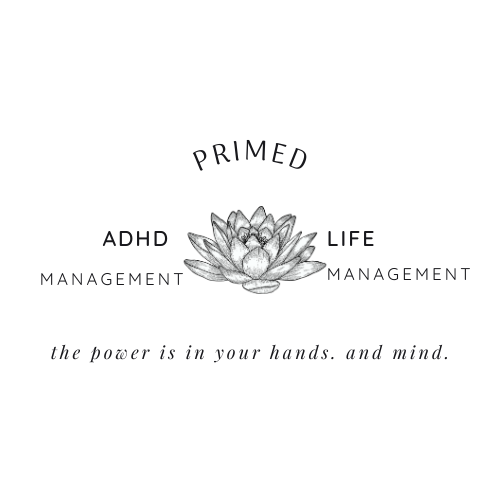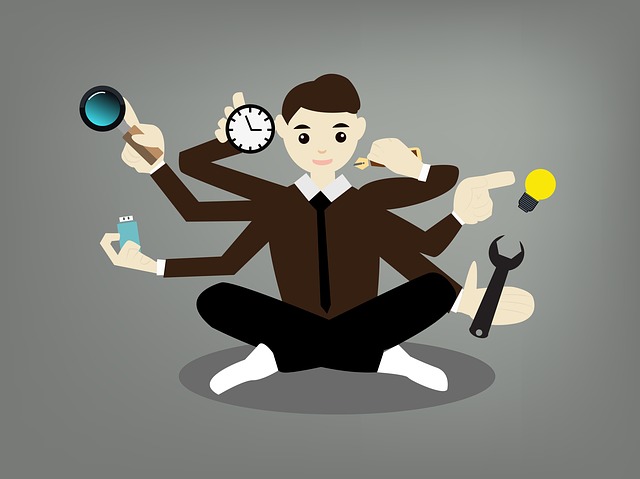Never Say This to a Person With ADHD. I’ve heard many of these.
1. “Just tune it/her/him/them out”
If only it were that easy. Those of us with ADHD can tune people out when we’re hyperfocusing (those of us who hyperfocus) but day-to-day, chatty people are a distraction. I get anxious and frustrated when multiple conversations are going on around me or more than one person is talking to me at the same time.
Another trigger: The sound of people speaking with vocal fry. You know, that croaky, vibrating voice that makes it easy to imagine the speaker’s larynx vibrating. Sometimes I speak in vocal fry, and then immediately feel the need to apologize, even though not everyone is triggered by it.
This is the photo I’m using because it’s licensed for reuse.
This is the photo I wanted to use, but I don’t have a Shutterstock account.
2. “Just focus” or “Just do it”
(“It” being the task.)
Focus is not the result of willpower. You can’t simply tell yourself to focus and be done with it. Focus is controlled by brain chemistry. The brain of a person with ADHD triggers fewer neurotransmitters, such as dopamine, which control focus and mood. ADHD is a neurological disorder.
3. “Think positively”
A job recruiter said this to me after I told her that I was dealing with an ADHD flare-up in a toxic workplace that she’d recruited me into. (To be clear, she didn’t know about the toxicity until I told her.)
Positive thinking and talking it out are only parts of the solution. It’s way more complex than that. There are neurotransmitters and brain health involved in those automatic negative thoughts. You don’t tell an obese person to “eat less”. You don’t tell a person with ADHD or depression to “be happy”. I have done a shitload of meditating. I’ve talked to angels. I’ve had heart-to-heart conversations with the child version of myself as if I’ve time-travelled to see her. I’ve interrogated my inner guide, who’s one smart woman, by the way. Your inner guide is too. “Think happy thoughts” may have worked for Wendy in Peter Pan, but it’s not enough. Those inner gremlins are evil sons of bitches and although it is necessary to squash them, it’s not as easy as flipping a switch. It takes patience, training (sometimes), time and conscious self-love.
4.”You’d hate [place + environmental trigger]”
Examples:
- “You’d hate that restaurant. It’s always crowded”.
- “You’d hate that store. It’s so loud.”
- “You’d hate my office. There’s no privacy.”
This is another one that I heard from the recruiter.
There’s an element of hate in there – yes, people hate crowds – but the word misses the point because it’s not about hate, it’s about discomfort.
I am sometimes physically unable to function in a way that feels normal when I’m overstimulated. Sometimes loud bars trigger me. Sometimes I’m triggered when the music – or talk radio – is just quiet enough that it sounds like a whisper. Sometimes it’s a crowded subway. Or the music that a store is playing. When I used to go to clubs I hated when people touched me with their sweaty bodies. When smoking was allowed in clubs and bars (and everywhere else) I was less bothered by the smell if I lit up too.
Sensory overload is real. I hate the feeling. Loud sneezes startle me. One time, my partner woke me up by turning on the light and the TV. The light and sound sent me into sensory overload. I ran to the bathroom, closed the door (which I never do when it’s just us at home) and sat on the floor in the dark hyperventilating and trying to catch my breath. I felt like a child having a freakout. He never did it again.
The above refers to autism but sometimes people with ADHD experience this.
5. “Must be able to multitask”
Even in non-ADHDers, multitasking results in poor productivity. Employers are finally realizing this.
Some multitasking can be done but it needs to be active and passive, like reading while listening to wordless music. Some passive activities can be combined with active activities, but I don’t recommend combining active activities.
That said, everyone is different and so this point isn’t universal.
Interestingly, it recently occurred to me that one of the reasons I don’t like to drive is that I don’t like the focus it takes or the multitasking.
I eagerly got my driver’s license at the age of 16 and renew it every time I get a renewal notice, but I mostly stopped driving a few years later, except when it was required by a job. After a few minor scrapes (At 17-years-old, I knocked the mirror off a Jaguar and left a note, for starters) I thought I was a bad driver. I didn’t really need to drive because I’ve only lived in cities with good public transit.
I’ve been learning to drive stick shift. Remembering to press the clutch while shifting or remembering which pedal to use when (I’m not talking break vs. gas) takes practice. I think that ADHDers can make poor drivers or excellent ones. It is amazing how muscle memory kicked in on my second lesson. I had a few panicked moments (“OMG we’re coming up to a steep hill, WHAT DO I DO??”) but I was fine. Until I stalled getting into a parking spot. 🙂 I appreciate the focus it takes. It takes a lot of focus. Because my muscle memory isn’t fluent yet, I have to focus on the inside of the car as well as the outside. With an automatic transmission, it’s mostly the outside you have to think about. I think that stick shift is excellent for ADHD because it forces focus. It’s also more exhausting, in my experience.
6. “Try harder”
I can’t even.
What would you add to this list?



